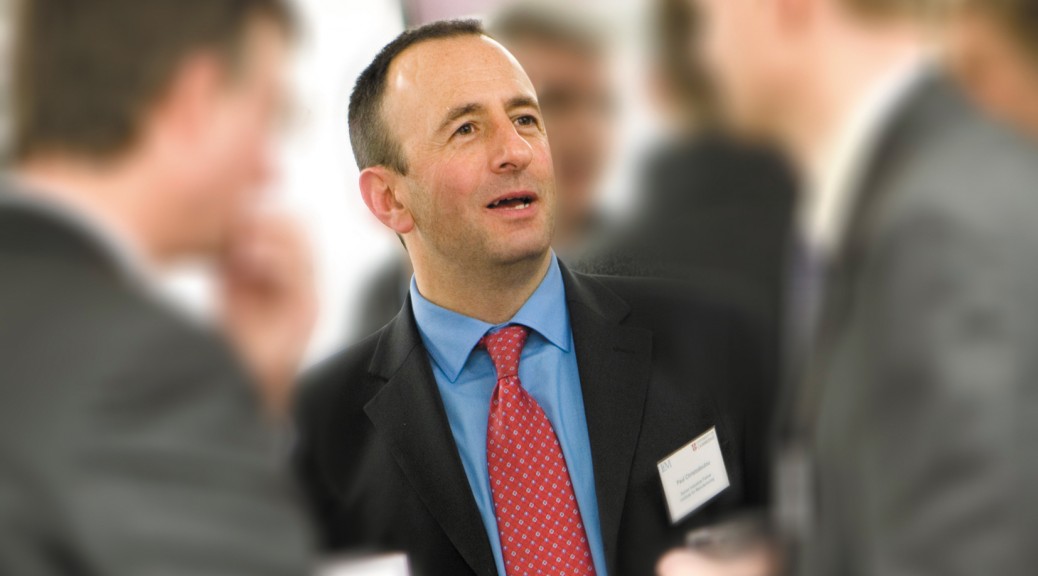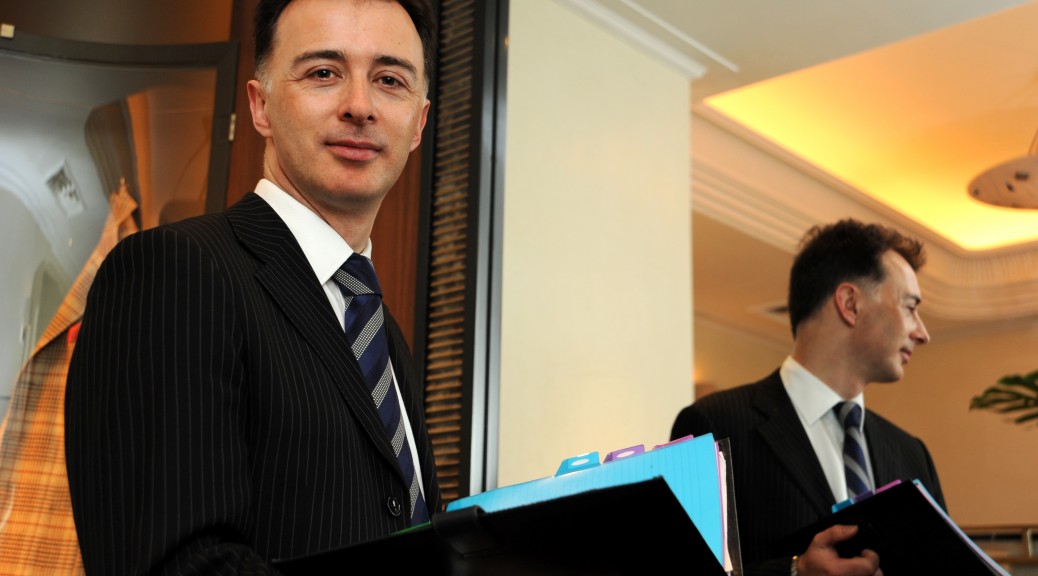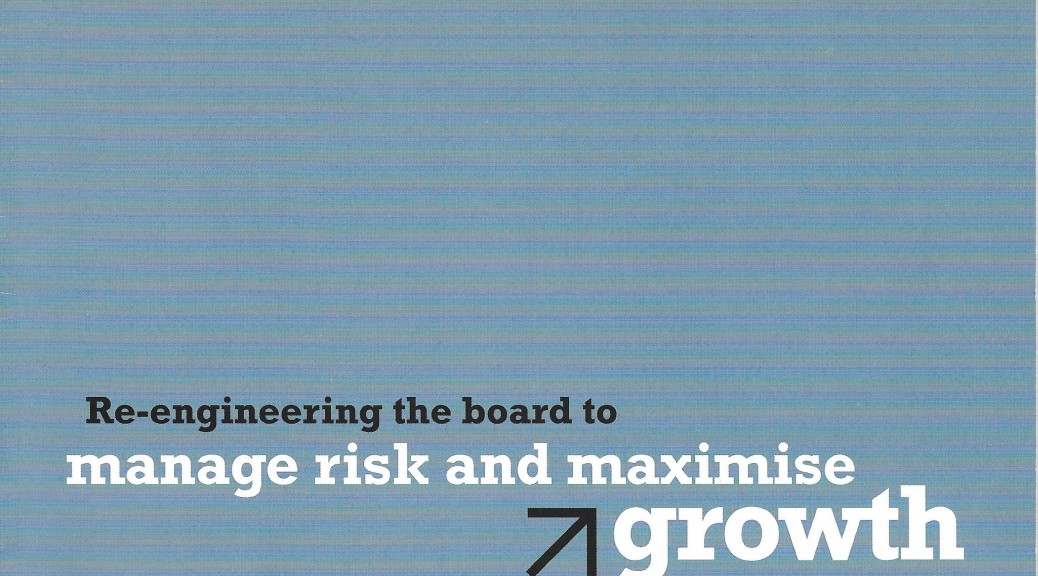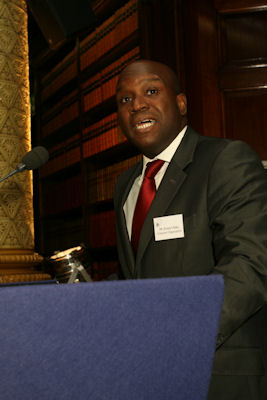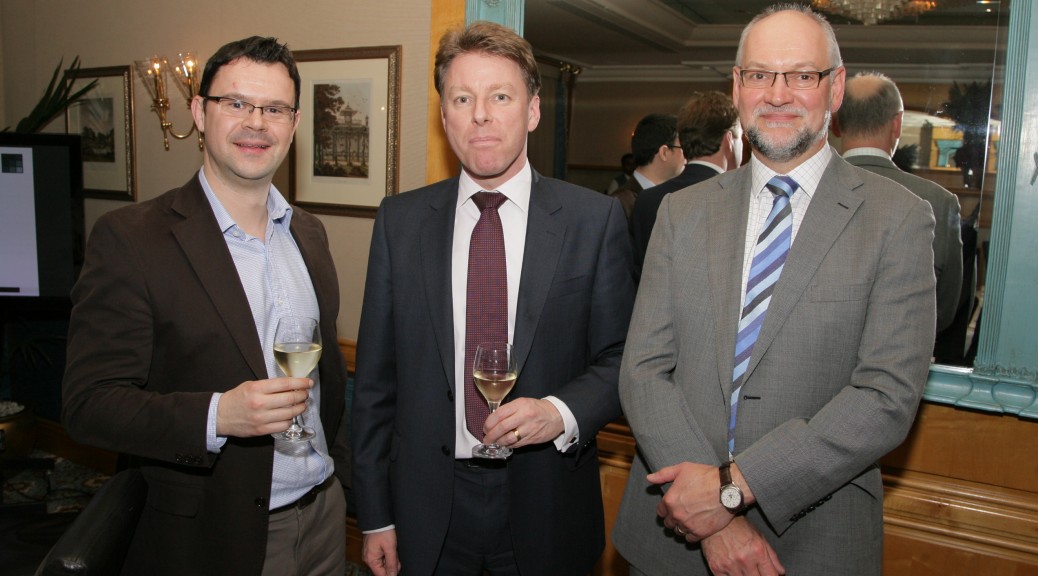Adam Bazire, Vice President, Business Development, AMETEK

Adam Bazire (right) with Fellows at an SMF Networking Dinner
AMETEK Inc is a leading global manufacturer of electronic instruments and electromechanical devices with annualised sales of $2.5 billion. The company has over 11,000 staff working at more than 80 manufacturing facilities and more than 80 sales and service centres in the USA and around the world.
Expertise: Power, instrumentation, process control, motors, aerospace, industrial.
Michael Astell is a Chartered Professional Engineer and a Fellow of the Institution of Mechanical Engineers.

Mike’s business achievements and MBA have led him to become one of 300 SMFs who provide support to boards of UK and international businesses.
Michael most recently worked for Centrica as Director of the East Irish Sea business. This included the Morecambe gas fields with 9 platforms plus the Barrow terminals and Heysham base. Michael’s career includes:
- Managing Director Designate, Dounreay for the UK Atomic Energy Authority
- EMS Project Leader and Corporate Strategist for Shell, which supplies transport fuel to 900 service stations in the UK, as well as meeting the demands of businesses – construction industry, aviation, chemicals and shipping
- Operations Manager for Shell, responsible for an area in the North Sea with a budget of £120 million, producing 40,000 barrels a day
- Non Executive Directorship at Acrobot, a spin-out company from Imperial College London specialising in surgical navigation systems and robotic devices
Michael is a keynote speaker at oil industry seminars and a lecturer on various university business and engineering programmes as well as a mentor for junior engineers and professionals. Michael’s business knowledge and experience allow him to provide insight on:
• Risk analysis and strategic planning
• Developing effective marketing strategies
• Finance
• Problem solving
• Project Management
Sam Cockerill, Founder and Managing Director, Libertine FPE
 Sam is the founder and Managing Director of Libertine FPE, a low-cost, high-efficiency engine start-up. Sam is an independent management consultant and entrepreneur. He consults in the renewable energy sector for a range of industrial, academic and public sector clients. He is also the non-executive director of Providence Holdings, one of the UK’s major agricultural supply chain management companies.
Sam is the founder and Managing Director of Libertine FPE, a low-cost, high-efficiency engine start-up. Sam is an independent management consultant and entrepreneur. He consults in the renewable energy sector for a range of industrial, academic and public sector clients. He is also the non-executive director of Providence Holdings, one of the UK’s major agricultural supply chain management companies.
Sam has co-authored several published scientific papers underpinning the sustainability of grain biorefining, and published scientific papers on the sustainability of biofuels and biofuel feedstocks, and is a named inventor on several patents.
Expertise: Global ethanol market and pricing dynamics, biofuel/biomass supply chains and sustainability, renewable energy policy, new vehicle technologies; as well as business related topics – growth strategy development, international business development, creative career development.
Tom Delay, Chief Executive, Carbon Trust

Previously an engineer with Shell for 16 years, Tom worked for five years in consulting before joining the low carbon sector as founding chief executive of the Carbon Trust. Tom was the first SMF President and one of the first two Fellows to receive an MBA through the scholarship scheme.
Expertise: International business development, creative career development.
Simon Duncan, Chief Executive Officer, A Shade Greener:
A Shade Greener is a renewable electricity generator. The company promotes solar energy that is accessible to everyone. Up until now only the wealthy could afford solar panels, however, new legislation that came into effect from April 2010, provides the company with guaranteed income for the electricity its panels generate, enabling A Shade Greener to fit free solar panels onto any roof that is suitable. Now nearly everyone can have access to free electricity all year round. Expertise: Solar PV, installations, solar power, renewable energy.
David Falzani, CEO, Polaris Associates / President of SMF

Polaris offers strategic perspective and analysis, linking activity to drivers of success; revealing buyer decision-making process. Polaris works in a variety of sectors including energy, technology, software and charities; helping clients with business and financial development, technology projects, marketing and strategic planning, and general commercial management.
Expertise: Business development, finance, operations, marketing.
George Fowkes, Owner, The Clear Alternative
The Clear Alternative performs critical business development work for young clean technology companies. Services include market study and research, business planning and fund/grant raising, sales and project management, supplier selection and contracting.
Specialist topics: Market analysis and opportunity evaluation, supplier/partner/client development, project and interim management, market entry, ‘first deal’, product launch.
Graham Hastie, Managing Director, Bellfield Consulting: .

Bellfield consulting provides strategy, operations and rankings advice for the Higher Education sector.
Expertise: Higher education, strategy, operations, rankings.
David Hardy, Operations and Technical Director, Envirowales
 Envirowales is a recycler of lead-acid batteries and lead scrap materials. Expertise: recycling.
Envirowales is a recycler of lead-acid batteries and lead scrap materials. Expertise: recycling.
Nick Laird, Chief Commercial Officer, Ceridian Corporation:
A business services company that helps customers maximise the power of their people, lower their costs and focus on what they do best. Ceridian’s suite of innovative managed HR solutions includes payroll and compensation, employee benefits administration, staffing, compliance, HR outsourcing and employee assistance programmes, work life, health & wellness and productivity management solutions.
Expertise: HR, business process outsourcing, payroll, compensation, employee benefits administration, staffing, compliance, tax filing, HR administration, HRO, employee assistance programs (EAP), work-life, health & wellness, productivity.
Chris Martin, CEO Spirogen Ltd and Chairman Crescent Diagnostics
 A Chartered Director and highly qualified chemical engineer, Chris Martin took an MBA as the basis for a successful entrepreneurial career in the clean tech, high tech and biotech fields. He is Chief Executive of Spirogen, a clinical stage cancer drug development company and non- executive Chairman of Sciona inc and Crescent Diagnostics.
A Chartered Director and highly qualified chemical engineer, Chris Martin took an MBA as the basis for a successful entrepreneurial career in the clean tech, high tech and biotech fields. He is Chief Executive of Spirogen, a clinical stage cancer drug development company and non- executive Chairman of Sciona inc and Crescent Diagnostics.
Chris is veteran of high tech start- ups and spinning out technological advances made by academic institutions into successful commercial companies. He started his career at the Atomic Research Establishment but his business mind led him into more commercial roles. After his MBA at the Swiss business school IMD, Chris led a management buy-out of consultancy Marex, setting up Paras Ltd as a consultancy to assist companies in the oil industry make sound technology decisions.
Chris set up Xenva as an early stage feed capital company to work with embryonic companies based on campus research as they grew. Spin-out companies he has worked with include Solcom, which develops web-enabled systems monitoring and management systems and Sciona a genetic personalised nutrition.
His interests in corporate finance and fund management include board membership of the RCM Technology Investment Trust PLC. He also holds the ICAEW Corporate Finance Qualification.
Expertise: startup experience, business funding / venture capital, e-commerce, international business development, creative career development, women in business.
Ian Peerless, Owner, Peerless Engineering Limited and Director IPKA Consultancy Limited
Ian has spent the majority of his career working for Shell and Corus in a range of positions including Operations Director, Strategy Director, Sales Manager and Logistics Manager. He is one of the founders of IPKA Consultancy Limited which spun out of Shell and which assists board members around the world to implement change. In parallel Peerless Engineering Limited pursues new product opportunities. A current project is the commercialisation of a robot designed for extreme oil and gas operations.
Expertise: Hydrocarbon project front end loading, subsurface engineering and operations, steel value chains and strategy, commercialisation of new products, mergers and acquisitions, driving change through large organisation
Andrew Phillipps, Successful Serial Entrepreneur
 Andrew Phillipps is a entrepreneur whose professional engineering background and MBA has helped him to make his mark on a multitude of ambitious and innovative business ventures. These include:
Andrew Phillipps is a entrepreneur whose professional engineering background and MBA has helped him to make his mark on a multitude of ambitious and innovative business ventures. These include:
- Co-founder of Active Hotels, the UK’s leading provider of technical solutions that enables hotels to sell rooms on 15,000 sites and through 84,000 travel agents
- Chairman and founding investor of i20 water, a company set up to save the UK a fifth of the 3.5 billion litres of water it wastes a day
- Chairman and part MBO of Toptable, the UK’s leading restaurant reservation, review and search site
- Chairman of Greentraveller, a site that helps travellers reduce their carbon footprint
- Director of Reevoo, a site that houses a collection of over one million customer reviews on electrical products.
Andrew lectures on entrepreneurship at INSEAD and London Business School.
Expertise: e-commerce, international business development, creative career development.
James Raby, SMF Treasurer and VC Specialist
 James Raby was formerly a Venture Capital Executive with the VC arm of Skandinaviska Enskilda Banken (SEB) where he provided venture capital investment in early and middle stage media, wireless and technology companies. SEB is one of northern Europe’s leading banks.
James Raby was formerly a Venture Capital Executive with the VC arm of Skandinaviska Enskilda Banken (SEB) where he provided venture capital investment in early and middle stage media, wireless and technology companies. SEB is one of northern Europe’s leading banks.
James has spent the majority of his career within the operations and general management functions of broadcast, media and wireless services companies including NTL Broadcast (now Arqiva) and VT Communications within Europe and Asia. James studied for his MBA at EAP in France in 1995 and was one of the first two Fellows to receive an MBA through the SMF scheme.
Expertise: New media, venture investment, restructuring, recovery & turnaround, privatisation & cultural change, innovation & due diligence, finance, banking, wholesale banking, retail banking, mutual funds, life insurance, pension.
Bill Sneyd, Founder and Chief Operating Officer, HomeSun:
 HomeSun is the UK’s leading ‘Free Solar’ business – bringing the benefits of renewable energy to tens of thousands of households. HomeSun makes home renewable energy commonplace, starting with Solar PV. The company is breaking down barriers of price and complexity to make it easy for homes to generate their own energy.
HomeSun is the UK’s leading ‘Free Solar’ business – bringing the benefits of renewable energy to tens of thousands of households. HomeSun makes home renewable energy commonplace, starting with Solar PV. The company is breaking down barriers of price and complexity to make it easy for homes to generate their own energy.
Expertise: Solar PV, renewable energy, free solar PV.
Mark Spence, Founder and Chief Executive Officer of three businesses
 Mark is a successful entrepreneur with diverse and successful businesses in engineering, chemicals and mobile communications. He is chief executive and founder of:
Mark is a successful entrepreneur with diverse and successful businesses in engineering, chemicals and mobile communications. He is chief executive and founder of:
- Telemetrics, which was set up to exploit the revolution in M2M technology, improving the service for engineers and other personnel ‘on the move’
- Cosmetic Rheologies, an innovator in polymer technology for hair and skincare products.
- Mass Measuring, which provides weighing, conveying and process control equipment and utilises the same expertise as Telemetrics
- CRL and Telemetrics have won SMART awards for innovation.
Specialist topics: International business development, creative career development.
Gordon Wylie, Director, Free Green Electricity Corporation: Free Green Electricity Corporation is focused on the free installation and free long-term maintenance of small-scale renewable energy generation systems for both domestic and commercial property owners in the UK, and on delivering an attractive sustainable financial return for investors. Expertise: Renewable energy, solar power.
Richard Robinson, MD, Heathrow Express
 Richard describes himself as being the beneficiary of a “top-class engineering education”, first at Nottingham University, then during an eight-year spell with ICI Acrylics. Richard studied for an MBA in general management and venture finance in HEC, Paris where he won an exchange programme place at the Stern School of Business, New York. Today, Richard is Managing Director of Heathrow Express – a business unit of BAA Heathrow. He is a commercially driven executive with full P&L experience running a £100 million turnover, £1 billion asset base business.
Richard describes himself as being the beneficiary of a “top-class engineering education”, first at Nottingham University, then during an eight-year spell with ICI Acrylics. Richard studied for an MBA in general management and venture finance in HEC, Paris where he won an exchange programme place at the Stern School of Business, New York. Today, Richard is Managing Director of Heathrow Express – a business unit of BAA Heathrow. He is a commercially driven executive with full P&L experience running a £100 million turnover, £1 billion asset base business.
Expertise:
- Working as Operations Director for a subsidiary of Anglo American, charged with turning around the company’s manufacturing operations
- Brand building and business development whilst leading a consumer-facing startup business
- Modern sales and marketing techniques, coupled with an engineer’s natural understanding of the operational and technical side of business – providing ‘the perfect platform of skills for senior business leadership roles
Case studies correct at the time of publication. SMFs may have moved to new posts since publication. For the latest career information on our Fellows visit our SMF Profile Page.





